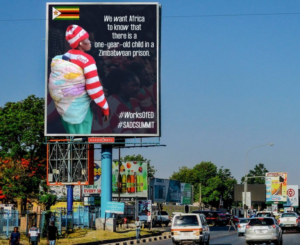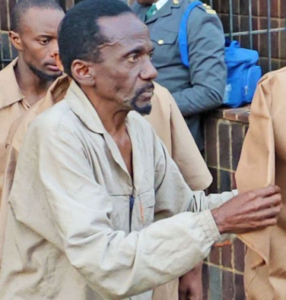POLITICAL VIOLENCE: THE DARK REALITY OF A PARTY OBSESSED WITH SELF-ENRICHMENT

In recent years, political violence has emerged as a significant issue, particularly in relation to a political party that seems to prioritize self-enrichment above all else. This party has consistently demonstrated a blatant disregard for the supreme law of the land, neglected the welfare of the people, and deprived citizens of essential services. The consequences of their actions have been severe, leading to a paralyzed state, widespread neglect, and an alarming deprivation of services across the board.
When citizens attempt to exercise their basic constitutional rights, they are often met with violence. The party in question has been known to utilize various state resources, including the police and military, to maintain its grip on power. The police force, in particular, has become impoverished, partisan, and politicized, desperately in need of reform. This situation is further exacerbated by the fear that permeates the uninformed and narrow-minded rural population, who are particularly vulnerable to the violence instigated by this political entity.
The fear and violence propagated by this party have had a profound impact on the effectiveness of the government. By prioritizing their own interests over the well-being of the people, this party has rendered the government ineffective, attracting more violent means to maintain their power. Their ultimate goal appears to be the establishment of a single-party rule, primarily for their own benefit, with a blatant disregard for the law.
Political violence has become a means to an end for this party, ensuring that their rule remains unchallenged. This failing, terrorist, tyrannical, authoritarian, illegitimate, parasitic, and criminal entity has repeatedly violated the supreme law of the land, leading to state paralysis and potential collapse. The criminal enterprise of pests and parasites that constitutes this party, known as Zanu PF, has shown a spectacular disregard for the rule of law and the welfare of the people.
The masses, especially the uninformed and politically naive electorate, may not fully realize the extent to which they are being manipulated and oppressed. The political violence orchestrated by Zanu PF is designed to convince the electorate that they have no power, reinforcing the party’s narrative that it alone has the unchallenged right to rule. This terror is used to facilitate the party’s self-enrichment impulses, ensuring that their power remains unchallenged.
The implications of this are far-reaching. The neglect of the people’s welfare and the deprivation of essential services have led to a paralyzed state, teetering on the brink of failure. The use of violence to maintain power is a clear indication of the party’s desperation and its willingness to go to any lengths to secure its position. The politicized and impoverished police force serves as a tool for enforcing the party’s will, further deepening the crisis.
The need for reform is urgent. The police force must be depoliticized and adequately funded to ensure they serve the people rather than the interests of a corrupt party. The supreme law of the land must be upheld, and the welfare of the people prioritized over the self-enrichment of a few.
In conclusion, political violence in this context is not just an isolated problem but a symptom of a deeper, more systemic issue. The party in question, Zanu PF, has shown a complete disregard for the law and the well-being of the people, using violence as a means to maintain its power. It is imperative that the electorate becomes informed and empowered to challenge this narrative, ensuring that the true power lies with the people, not with a self-serving, tyrannical party. Only through comprehensive reform and a commitment to upholding the law can the state hope to emerge from this crisis and build a future that serves all its citizens.




I appreciate the article’s focus on the need for the electorate to become informed and empowered. It’s crucial for citizens to understand the gravity of the situation and take action to demand better leadership.
Blaming all the country’s issues on one political party is overly simplistic and ignores other factors, such as economic sanctions and historical context. The author’s analysis lacks depth and fails to provide a balanced perspective.The repeated emphasis on the ‘uninformed’ rural population is condescending and dismissive. It’s problematic to assume that people are merely ‘politically naive’ rather than considering the complex reasons behind their political choices.